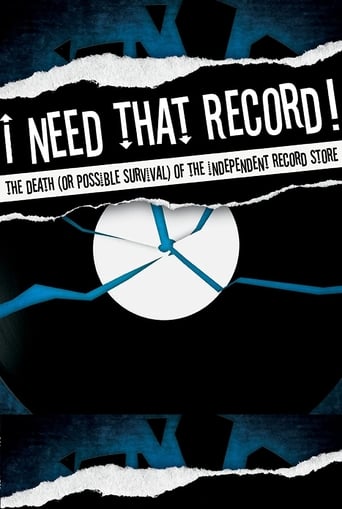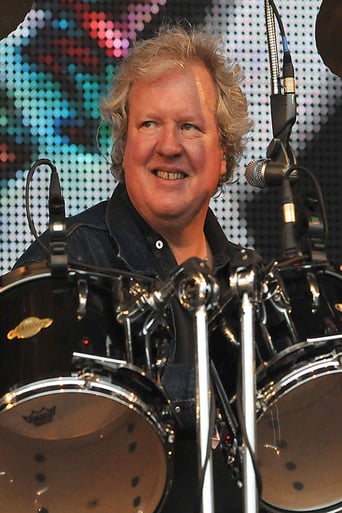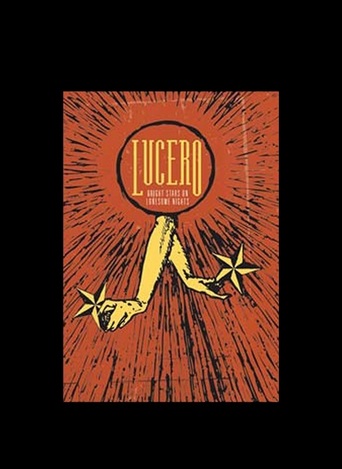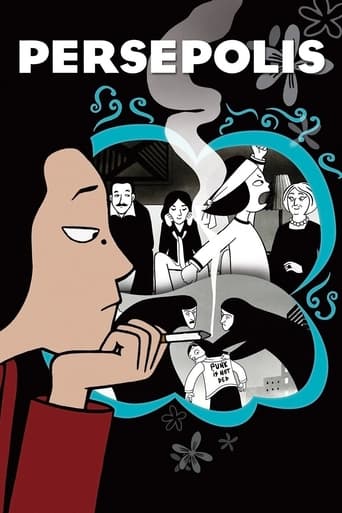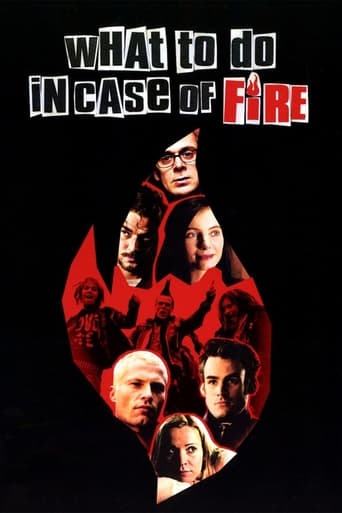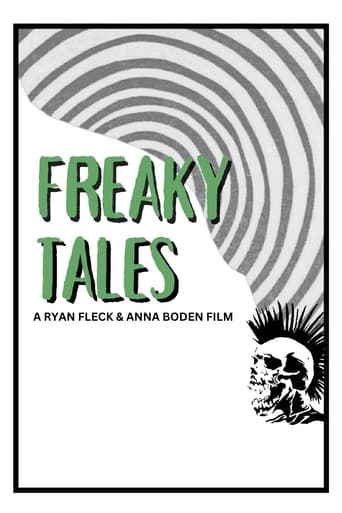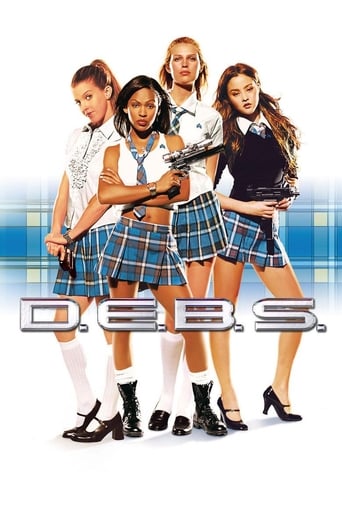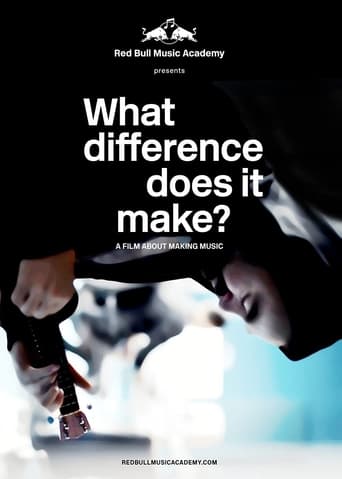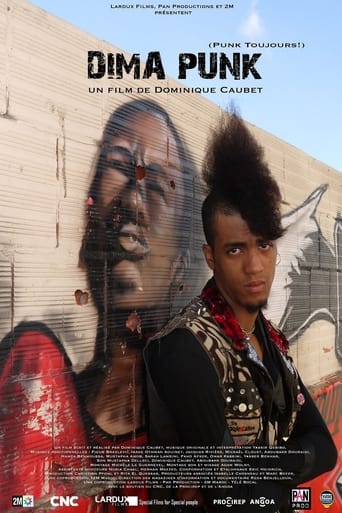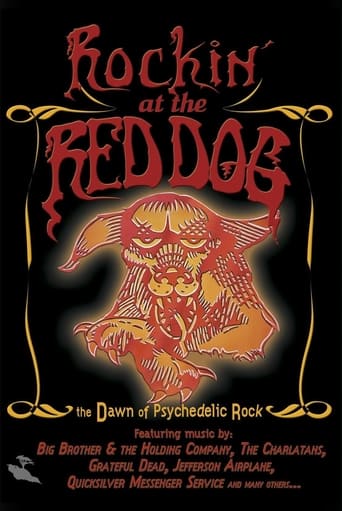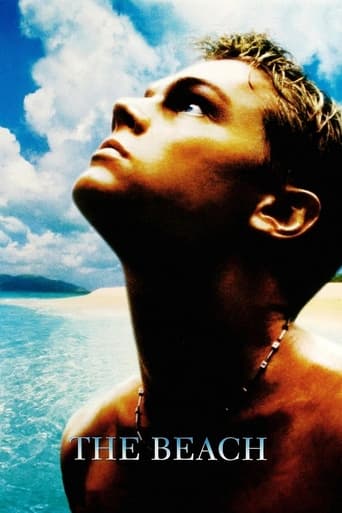I Need That Record! (2008)
Guerilla filmmaker Brendan Toller unleashes I NEED THAT RECORD! THE DEATH (OR POSSIBLE SURVIVAL) OF THE INDEPENDENT RECORD STORE, "an elegy for a vanishing subculture...a lively, bittersweet film that examines - with caustic humor, brutal candor, and, ultimately, great affection - why roughly 3,000 indie record stores have closed across the nation over the past decade," (Johnathan Perry, Boston Globe). A tour-de-force tale of greed, media consolidation, homogenized radio, big box stores, downloading, and technological shifts in the music industry told through candid interviews, crestfallen record store owners, startling statistics, and eye-popping animation. Fat cats or our favorite record stores? You decide. Featuring- IAN MACKAYE, NOAM CHOMSKY, MIKE WATT, THURSTON MOORE, LENNY KAYE (Patti Smith), CHRIS FRANTZ (Talking Heads), GLENN BRANCA, PATTERSON HOOD (Drive By Truckers), PAT CARNEY (Black Keys) , LEGS MCNEIL, BOB GRUEN, BP HELIUM, and many indie record stores across the U.S.
Watch Trailer
Cast
Similar titles
Reviews
good film but with many flaws
A film with more than the usual spoiler issues. Talking about it in any detail feels akin to handing you a gift-wrapped present and saying, "I hope you like it -- It's a thriller about a diabolical secret experiment."
The movie turns out to be a little better than the average. Starting from a romantic formula often seen in the cinema, it ends in the most predictable (and somewhat bland) way.
A clunky actioner with a handful of cool moments.
The movie has some good points and redeeming qualities. I agree with the previous reviewer about Noam Chomsky's placement in the film. The story is from the view of the typified "music nerd" as stated in the film. I saw about 95-98% men in the film so it was very difficult to identify with. Come to think of it, I felt the same way when I tried to go into those stores when they were in their heyday - it seemed like many staff members acted like music snobs... So this made it a little more difficult to empathize. I would have been interested in seeing more female representation and their experience with the stores as well. Thurston Moore made some thoughtful points. Very one sided and made for a very slim target audience.
A documentary feature examining why over three thousand independent record stores have closed across the United States in the past decade...I enjoyed this documentary, as it presented some nice facts and statistics about record stores, album sales, album prices... the rise of MP3s, the Telecommunications Act, etc. And it let record store owners vent about the death of their industry.Unfortunately, I also found the documentary to be one-sided. While I would not say it was factually incorrect, it had an obvious bias. And that is unfortunate, because it makes the film political rather than strictly factual. I would have liked to hear more people on the other side defending themselves or the Telecommunications Act, even if I may not agree with their defense.Most unusual was the presence of Noam Chomsky. I love Chomsky, but he seemed very out of place here. He was able to offer some general comments about bigger businesses replacing smaller ones, but had nothing particular to say about record stores or the Telecommunicatons Act. He even told the interviewers he had not listened to music since the 1940s and that his grandchildren were more aware of what was going on.
This documentary would lead one to believe that the problem with independent record stores is "capitalist greed". What it inadvertently points out is that many of the indie record store 'types' interviewed don't have the drive and seriousness to make a small business succeed. For every great indie vinyl store that I've frequented over the years, I've been to a baker's dozen with overpriced, poorly organized stock, obnoxious hipster clerks and a filthy, depressing shop space. And why the hell is a Communist America-hating academic like Noam Chomsky being interviewed here? I love indie music, punk rock and have collected vinyl (& styrene) records since 1961, but this film did not speak to me. I was actually glad to see most of these losers unemployed by the end of the film. And worst of all it made authentic American rock heroes like Ian M. and Lenny K. look kinda pathetic by appearing with this parade of losers.
First of all – just want to say – I'm a vinyl guy. And I'm not an older dude, I'm 28. I buy it at the local record store, and since most new music comes with download codes, I have it digitally too. Is there a lot of music I get online for free? Sure. But I buy a lot of the music I own, too, because I like having the records. Feels good in the hands. And I am a big supporter of the local record store – in Phoenix, where I live, there have been a few go under in the last few years, and there are really only a handful of good ones left.That said, I have a few problems with this film that really just have to do with its perspective of change in its industry. There's a certain nostalgia prevalent throughout the film that affects its many interviewees, and it tries to carry an argument which at its premise is a bit soft. One theme of the movie is that music – the culture, the art – and its fans are getting less by the changes in how music is discovered, bought, and talked about. But just as the movie geeks didn't die out with the bricks-and-mortar video rental industry, I really don't think music and all its subcultures have a whole lot to fear.The guys in the film may be glum that the emphasis is being shifted online, but that doesn't really signal a change in what music stands for or what we love about it. As long as bands make records, there will still be records to buy at record stores. And we'll still be having conversations about them in record stores, even though it's now happening more in other places – in blogs, bike shops, bars, basements, and plenty other places that start with "b." It's moving to places that start with other letters, too. Nothing's dying is what I'm saying, and I have a feeling that record stores going out of business haven't fully understood how they should integrate with the shift.I think that rarely is something ever lost when it comes to changes in art and culture; it's simply reinterpreted, redistributed, and enhanced in several cases. For example, the artwork on an LP is just that – artwork. In the past, yes, it was a significant companion to the album – but putting that one single element up on a pedestal is unnecessary today. Bands have websites, videos, posters, Twitter backgrounds, Facebook profiles, t-shirts/stickers/DVDs/etc. Less Than Jake made bobblehead dolls. Animal Collective even made a shoe. The bands are fine; music will live on. You can experience a particular group in more ways than ever before.If this film's argument is that music will somehow lose its way during the industry's transformation, then it seems they're simultaneously denying the resilience of the artists they claim to understand and champion. In the end, it really just does a good job of capturing the tail end of a cultural corollary and the wistful ruminations of those directly involved in its scene. A scene that yes, is shrinking, but is very much alive elsewhere.All that said, I'm still going to buy my music, and they'll still all be records. Feels good in the hands.Also: support your local record store!
